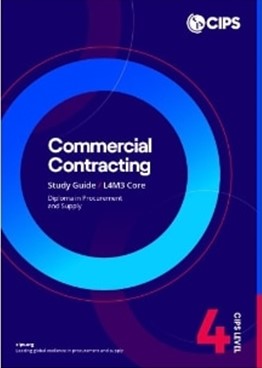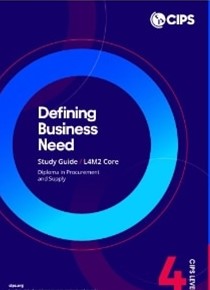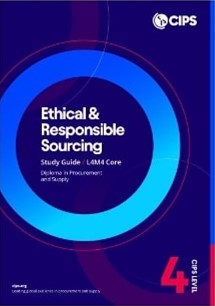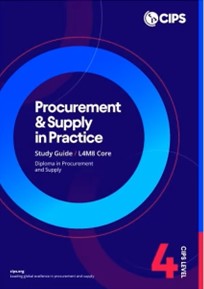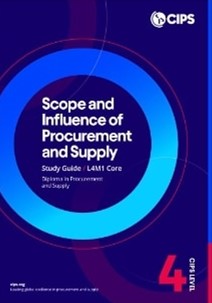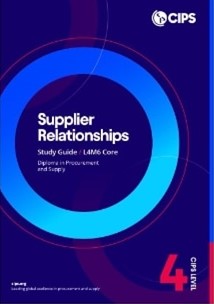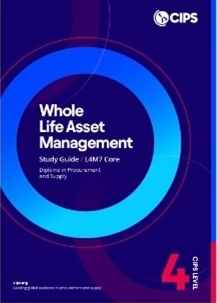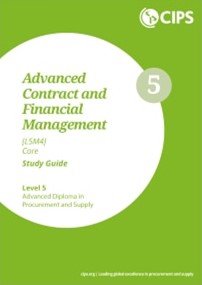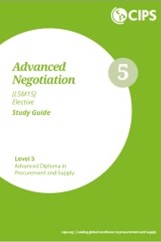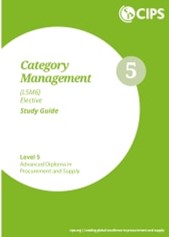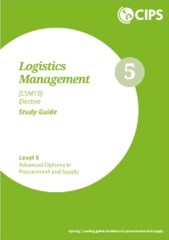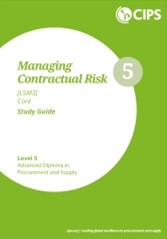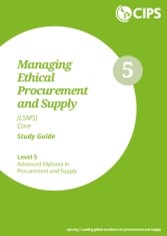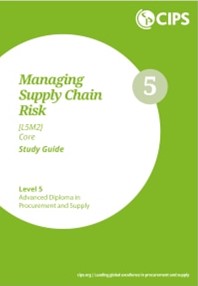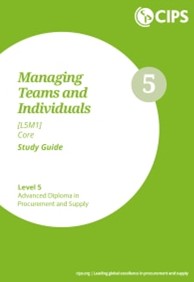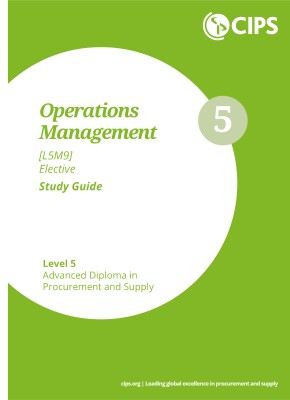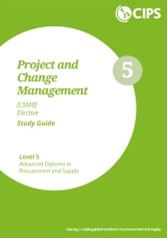Module purpose: On completion of this module, learners will be able to identify
the key stakeholders in the application of the sourcing process and analyse the
procurement cycle, evaluating the influence that procurement and supply has as
a source of added value for the organisation.
Module aims: In any organisation, a significant proportion of costs are
accounted for by the purchases of products and/or services, hence organisations
see procurement and supply as a key contributor to their value added
strategies. Equally, any organisation will also be managing the supply of
products and/or services to their customers, be they internal or those from
other external organisations, consumers or the general public. This module is
designed using the CIPS Procurement Cycle as its basis. It will provide those
who are interested in developing an informed awareness of different
perspectives or approaches within the discipline, an overview of the key stages
associated with procurement and supply and will serve as an introduction for
those who are expected to address complex well-defined procurement and supply
problems that are non-routine in nature.
The module also
serves as the initial study for learners who are embarking on the CIPS Level 4
Diploma in Procurement and Supply, hence coverage is limited to the definition
of concepts and ideas as well as to the terminology used in procurement and
supply, rather than detailed analysis, evaluation and practical application
which will be a feature of later CIPS level 4 modules
